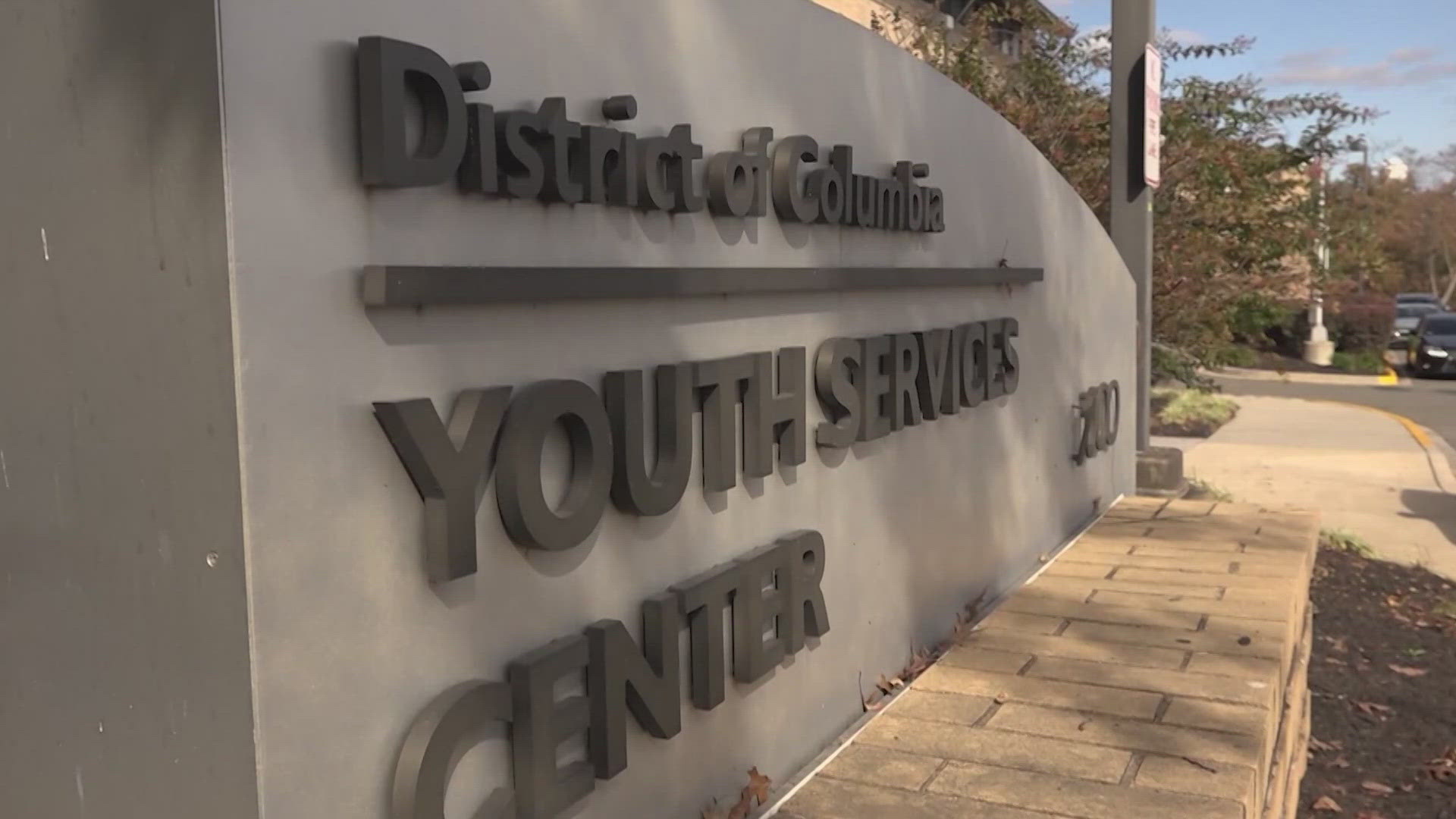WASHINGTON — Attorneys for the District want a federal judge to bar the public from a hearing Thursday about a lawsuit against the city’s embattled youth services agency.
In a motion filed Wednesday, lawyers representing the city and Department of Youth Rehabilitation Services (DYRS) director Sam Abed asked U.S. District Judge Carl Nichols to seal the hearing scheduled to discuss a preliminary injunction sought by juvenile detainees at the Youth Services Center (YSC). The motion argues the hearing will necessarily involve sensitive information about the juveniles that is protected by law.
“District law explicitly makes juvenile case records, social records, and law enforcement records confidential… and forbids their unauthorized disclosure,” the motion reads. “Unauthorized disclosures in violation of these provisions constitutes a criminal offense in the District of Columbia.”
Thursday’s appearance would be the first public hearing about the lawsuit filed in October by two 16-year-old boys who said they’d been sitting at the city’s frequently overcrowded youth jail for weeks – three months in one teen’s case – despite a judge ordering them placed at a residential treatment facility that could provide them individualized care YSC is unable to. Nearly two dozen other juveniles awaiting placement at YSC have sought to join the lawsuit as a class action.
Complaints about juveniles languishing at the city’s youth jail aren’t new. Last November, D.C. Superior Court Judge Andrea Hertzfeld threatened to hold Abed in contempt after nine different incidents where judges had ordered juveniles placed in a shelter house but found DYRS had put them in its lockdown facility, YSC, instead. Abed told Hertzfeld in December 2023 the agency was rushing to bring more shelter beds online as well as additional space at YSC to bring the total number of available beds to 98. Despite those efforts, DYRS data shows the city’s juvenile jail has spent much of the year overcrowded. An online dashboard made available by the agency shows YSC was housing 100 juveniles as of Tuesday.
Along with the lawsuit, attorneys for the juvenile plaintiffs filed a motion for a preliminary injunction in October asking Nichols to order DYRS to complete a list of demands, including ensuring that all juveniles at YSC currently awaiting placement had been relocated to an appropriate facility within 14 days. The requested injunction would also require DYRS to complete initial assessments and individualized treatment plans within timelines established by D.C. law. WUSA9 reported in July how the significant increase in juvenile crime had created a massive backlog in psychiatric evaluations that was dragging the process to a near-standstill for many children.
Nichols permitted attorneys for the District and DYRS to file their opposition to the requested injunction under seal last month. He has also allowed the juvenile plaintiffs to file their motions using pseudonyms and to file supporting documents under seal.
On Wednesday, attorneys from the ACLU of D.C. and the D.C. Public Defender Service who are representing the teens objected to sealing the hearing, arguing the public has an interest in being present and pointing to extensive discussion about issues with DYRS by the D.C. Council and local news media.
“Preserving the constitutional right of public access is appropriate given the widespread public interest in this litigation and the specific interest in this hearing,” attorneys for the plaintiffs wrote.
Instead of sealing the entire hearing, the plaintiffs suggested any discussion about protected information could be conducted in a bench conference. That, the city argues, would be unwieldy. Attorneys for the District and DYRS noted both parties had sought to seal elements of the case previously and said the public would be served just as well by an opinion accompanying Nichols’ eventual order.
“The District objects to conducting the hearing in open court, its interests in confidentiality are extremely strong, and it faces great prejudice should closure not be ordered, the practical effect of which would be to force counsel to either tediously refrain from disclosing confidential information essential to the District’s defense during argument or risk exposure to criminal penalties,” District attorneys wrote.
As of Wednesday afternoon, Nichols had not ruled on the District’s request. The hearing was scheduled to begin at 2 p.m. Thursday.

